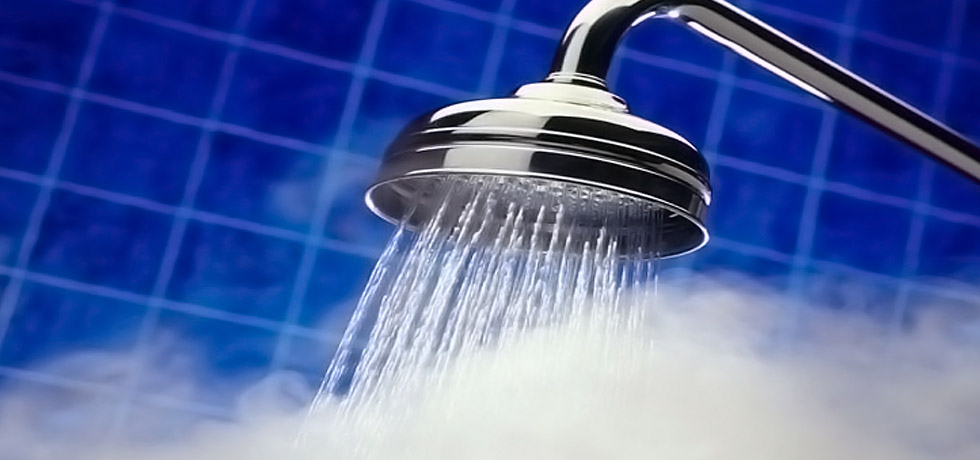
It’s never fun to wake up in the morning and hop in the shower only to find out that your hot water has already been used up by other members of the family. Or maybe you do have hot water, but it is taking an extremely long amount of time for it to warm up and start flowing to the shower.
In this case, you definitely need to adjust something; either in the water heater, or with your water usage. A properly working and efficient water heater should have ample amounts of hot water for the whole family, but until you can find a larger water heater there are some ways you can handle this scenario.
Water Usage Demands
Considering how much water your family uses on a daily basis can be a good place to start. For example, if someone in your family loves taking 30 minute hot showers, it may be time to consider reducing that amount of shower time down to 15 or 20 minutes.
If laundry or dishes are washed around the same time everyone is waking up and getting ready for work or school, maybe consider moving the clothes and dish washing times to the evening before bedtime.
The more hot water in demand, the harder your water heater has to work. A small or lower quality water heater simply may not be able to keep up with the demands of your family.
If your hot water has become more limited over time as new
Solution: You need a new water heater
If your water heater simply can’t keep up with your demands, then that’s all there is to it.
For high-demand households, a tankless water heater can be a great option. These units provide a constant supply of hot water and are only limited by the number of simultaneous applications. That means you can take two showers at the same time, but three might be pushing it.
Another option is to cycle up to a higher-capacity water heater, or to install a secondary water heater for additional coverage.
Learn more about your water heater options »
Wrong Temperature or Water Flow
A proper water temperature setting on your water heater should be 120 to 140 degrees Fahrenheit. Anything more than 140 can cause serious scalds to your skin, but anything less than 120 may leave your morning showers feeling too cold making you think something is wrong with your water heater.
In addition to adjusting the temperature, you may also be exceeding your water heater’s GPM or gallons per minute capacity. This measurement gives you a better idea of how many appliances and fixtures can be used at once, while still getting proper water flow and heat.
Solution: You need on-site help
If you exceed your GPM, you may need to upgrade your water heater with a larger model that has a higher GPM, or you could add tankless water heaters in separate areas of your home to help provide more hot water where it is needed most such as a kitchen or laundry area.
But this could also be an issue with the water flow. Cracked or clogged pipes can contribute to this issue, as well as a faulty or improperly set thermostat. Since there are several different factors that can contribute to this issue, it’s smart to have an expert on site that can help diagnose them.
Clogged Pipes
One of the biggest issues with anything that handles water is clogged pipes. In the case of a water heater, clogs are normally caused by a buildup of minerals in the pipes, valves, and along the inside of the tank itself.
This excess buildup can severely reduce the efficiency of heat and lower the quality of the hot water your water heater produces.
Solution: You need on-site help
If you suspect minerals or other sediment to be an issue, calling a professional plumber in Concord is the safest way to deal with this. You might just need to flush your water heater, or it might be a more substantial issue.

